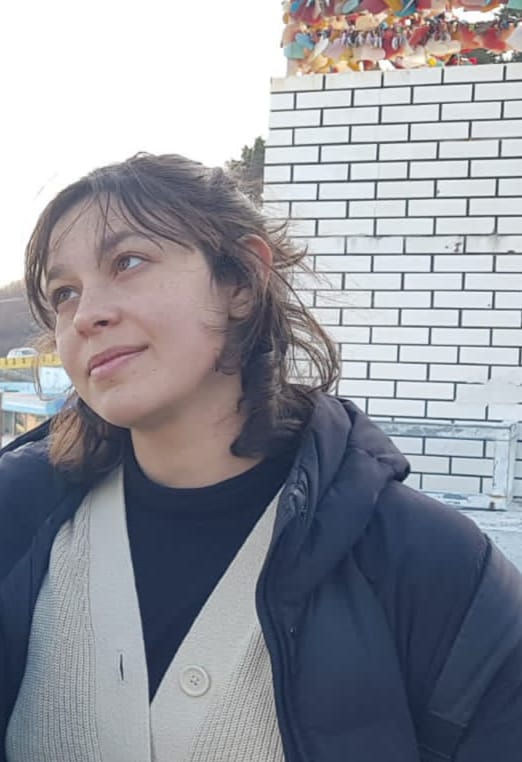
From Refuser Solidarity Network
My Name is Atalya, In 2017 I publicly refused to serve in the Israeli military. I did so because I felt I could not take part in the occupation of Palestine. Subsequently, I spent four months in military prison, but more importantly, I started walking a path of non-violent resistance to the Israeli occupation working together with Palestinian partners mostly in the city where I was born, Jerusalem.
In the past six years, I devoted myself to acting in solidarity through varied means, one of them being protective presence. That means accompanying Palestinians and using my privileges as a Jewish Israeli to offer safety, both in east Jerusalem and in the occupied Palestinian territories. Mostly it included being present at home evictions or accompanying shepherds who are being threatened by settlers. This presence provides protection because police and military in Israel treat Jewish people differently, they more rarely attack us and they mostly only converse with Hebrew speakers and so we can interven, film and take photos.
On Saturday October 7th, I was with friends at a protective presence shift in the village of At-Tuwani, in the Occupied Palestinian territories in the West Bank. While waiting for the shepherd we were supposed to accompany, one of my friends started to receive concerning messages from his family in Kibbutz Be’eri. His parents, younger siblings, grandmother, aunt, and uncle are lived in Be’eri, which was under a Hamas attack. And he immediately learned of the dangerous situation going on in the Kibbutz. In shock, he told us that armed Hamas militants entered the Kibbutz. His immediate family was locked inside their safe room, but his aunt and uncle were missing.
It was like a nightmare in real life . We went back to the village and he started to make his way back to Jerusalem. Me and the other activists stood watch at the borders of the village, as Israeli soldiers came and started to shout. They threatened they would shoot anyone who was outside. While trying to document the situation, one soldier, with a mad look in his eyes, pushed me to the ground. Not long after, a Hamas missile dropped in the fields of a nearby village. Hearing its blaring boom, it dawned on us that here there is no safe space around. Being in At-Tuwani at that moment felt unreal.
We did not know what to do. Should we stay and show our Palestinian partners we support them? Is it smart to risk ourselves that way? Would this help anybody? At the same time, I was thinking of my very good friend who was by himself, fearing he might lose his entire family. Should I go back home to be with him and support him? And what about my sister and her children who also live in a Kibbutz near the Gaza Strip?
After a few more hours at At-Tuwani we understood there is not much more support we could offer—it was time to return to Jerusalem. The way back was scary. We heard from our friend that he spent an hour at the border. Luckily, we made it back home faster, and immediately rushed to his home to be with him for a horror-filled night. By the middle of the night, most of his family was rescued, except his uncle and aunt, who are currently still in the hands of Hamas as hostages in the Gaza strip.
The days since have been scary and overwhelming. A week after our stay there, a Palestinian man was shot from point blank in At-Tuwani by a Jewish settler while an Israeli soldier stood by and watched. Friends were attacked by settlers in Wadi Sik, also in the West Bank, and the entire village was evicted. The horrors of war became clearer, with more and more people suffering and dying. So many people, both Israeli and Palestinian, are hurting and missing their loved ones.
Through all this hardship it remained true for me and my friend, that what we have is each other and other war resisting activists. Being together helps us, strengthens us. Slowly we see that we do have the power to affect this reality, even by helping just one person. We started to organize again, accompanying Palestinian workers back home—so they would not be hurt—and supporting families who lost their homes. Solidarity gives hope; we can work together to bring an end to this war.
In solidarity,
Atalya Ben-abba
Refuser Solidarity Network
